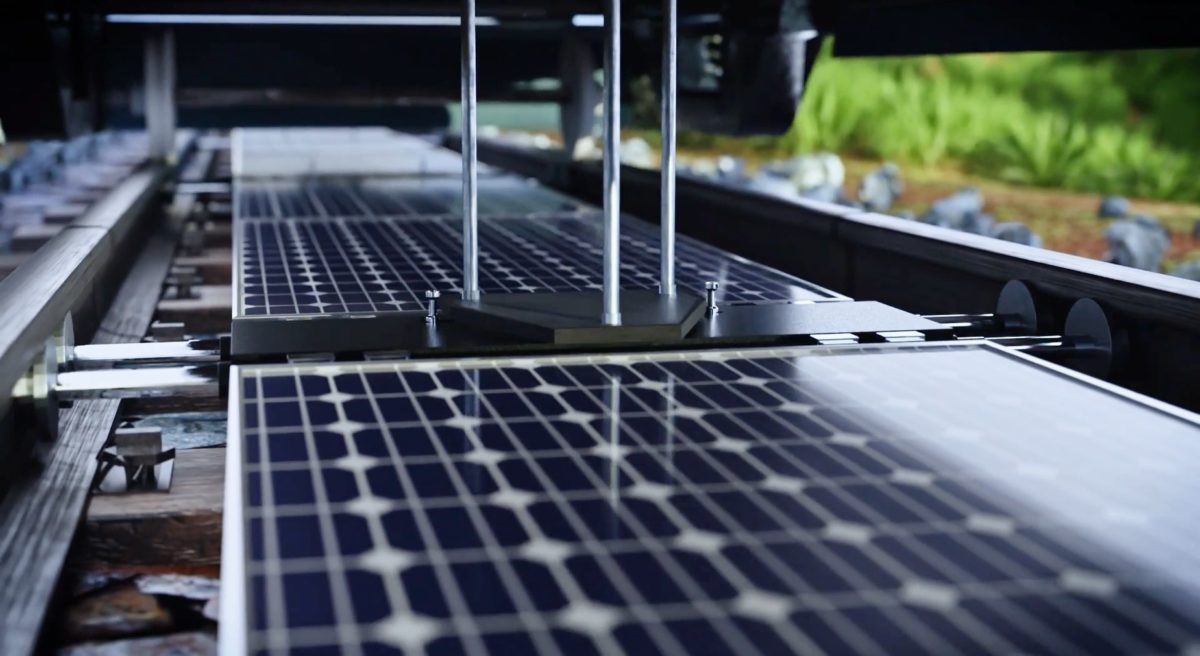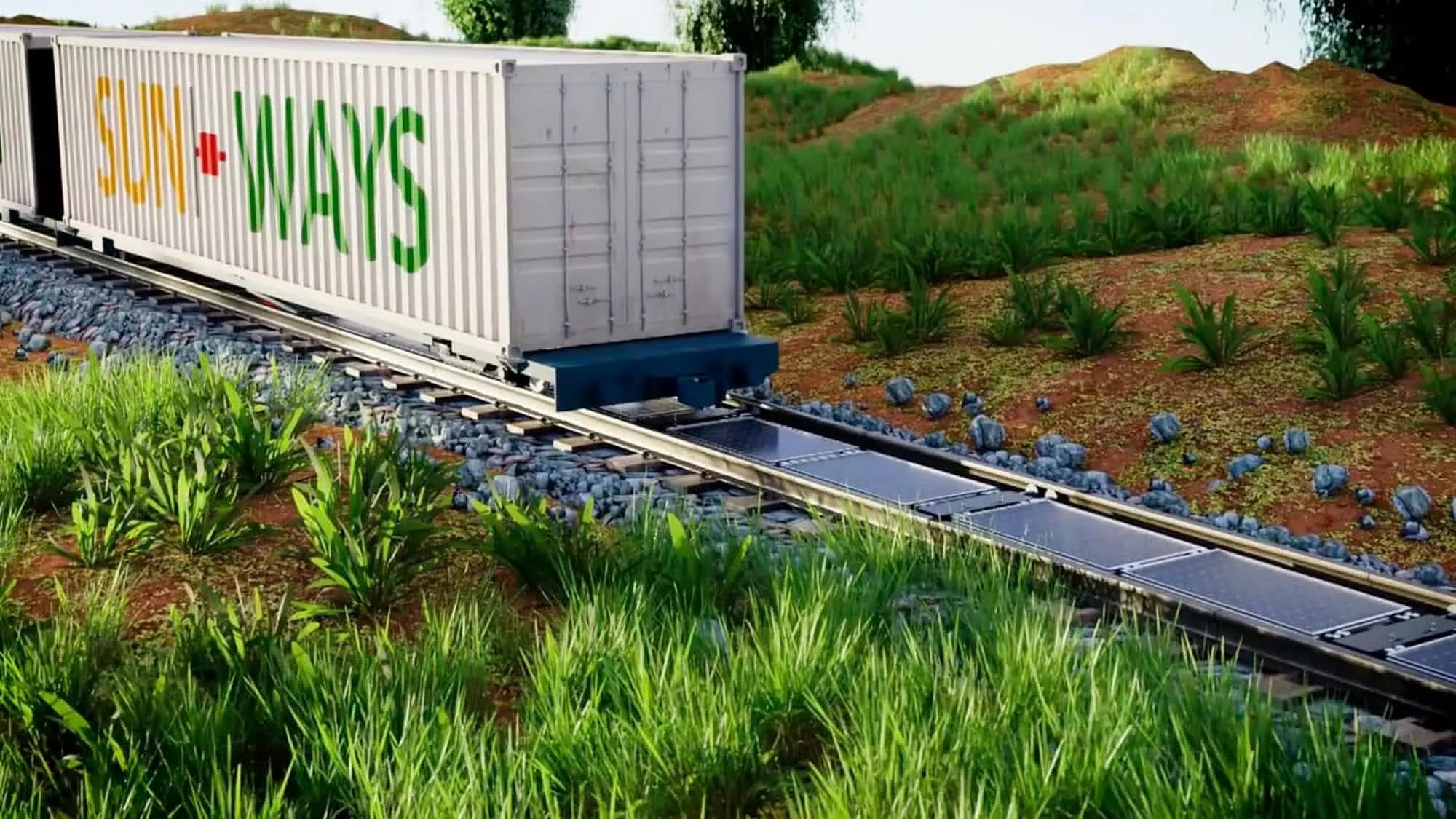Share This Article
Swiss start-up Sun-Ways implements a project to lay solar panels on railway tracks
Swiss start-up Sun-Ways has launched a project to equip railway tracks with solar panels. So far, the local government has permitted installing photovoltaic cells at one station, but the company plans to expand its activities over time.
The process is automated, with the 1-metre-wide panels placed in the space between the rails. An upgraded train with special installation equipment is used for the procedure. Sun-Ways plans to add another wagon to store the panels in the future. The Swiss start-up plans to install around 60 batteries on a 500-metre stretch of track near Neuchâtel. The project is estimated to cost USD 560,000. Initially, Sun-Ways plans to use all the energy generated to power homes. At the same time, the authors of the project intend to use solar energy to power trains in the future. This process is quite costly and requires a certain infrastructure.
The railway network in Switzerland is 5,000 km long. According to Sun-Ways, if solar panels were installed on all these tracks, around 1 GW of electricity could be generated annually. That’s enough to power 750,000 households.

Prospects for the initiative development
It should be noted that Sun-Ways is not the only company installing solar panels on railways. Greenrail in Italy and Bankset Energy in Britain have similar projects underway. However, their solar cells are smaller than those of the Swiss start-up. In addition, unlike its competitors, Greenrail has automated the stacking system. The train unrolls the panels like a carpet.
Not all experts are happy about these innovations. The railway industry opposes the installation of the panels, believing that they can cause a number of problems. For example, vibrations can cause cracks in the panels. There is also the possibility of grass catching fire from the sun’s glare. Experts also point out that the panels will increase noise levels because the trains will be in contact with a surface that does not absorb sound but reflects it. Another problem could be the reflection of light from the panels, which could dazzle drivers.
Sun-Ways refutes all the fears of its opponents. The company points out that its panels are more resistant to vibration than standard elements. Their black colour and special anti-reflective coating minimise the risk of glare. In addition, the panels are equipped with sensors that signal when problems occur. The company is also working to automate the cleaning of batteries from dust and dirt.

